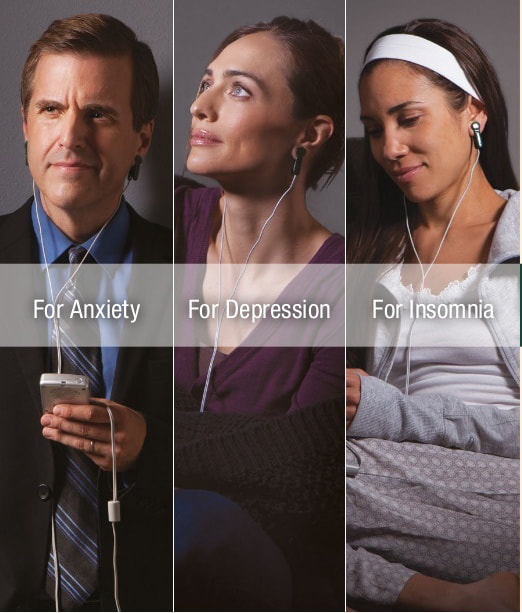Individuals, Couples, Families: Adults, Teens, Children
Our Take...
You are a highly complex being, shaped by your unique genetic and environmental influences. Too often, mental health treatment focuses on one aspect of you, and fails to address the other components that may be contributing to your problem. Targeted information gathering is a primary way we learn about you and why you've come to us. -Are you managing a chronic physical problem, getting adequate sleep, overworked, making good food choices, exercising? These are important environmental questions that stem from crucial areas of your life. Equally as important is your genetic makeup, your family history; -were your parents depressed, anxious or both? If so, there may be a genetic explanation for why you can't shake those feelings. At InSight, we take into account the unique qualities and ever-changing circumstances that make you, you. We work with you to resolve the issues that brought you to therapy and help you uncover other issues you may not have realized were dragging you down. We form a working alliance with you to help clarify and define your goals. We listen.
Adults:
Common issues brought to therapy include depression, anxiety, sexual anxiety, workplace problems, parenting problems, marital issues, sexual trauma, combat related trauma- PTSD, infertility issues, post-partum depression, post adoption depression, poor self-satisfaction, escaping/avoiding abusive relationships, trying to understand your partner/family, your infidelity/partner infidelity, interracial relationship issues, racial and bi-racial identity issues, fear of intimacy, emotional eating and emotional issues brought about by diabetes, cancer or other physical health related conditions.
Adolescents:
Problems addressed include low self-esteem, lack of motivation, bullying behaviors including "mean girl" syndrome, relationship problems, emerging sexuality, sexual psychoeducation, parental/family conflict, racial and bi-racial identity problems, STD awareness, STD prevention and coping, drug/alcohol experimentation, academic failure and fear of rejection by peers.
Children:
Problems addressed include anger, school behavioral problems, aggression, no friends, fear of dark and other phobias, poor self esteem, parental conflict, divorce trauma, sexual trauma, blended family issues, anxiety resulting in severe shyness and fear, separation anxiety, depression and attachment issues.
Play therapy is a primary technique utilized with children. Filial Therapy incorporates the primary caregiver(s) into the therapy process and utilizes that relationship as an agent for healing and change.
NOTE: AVAILABILITY OF PLAY THERAPY APPOINTMENTS IS LIMITED. THERE MAY BE A WAITING LIST.
Art and Sand Tray Therapy:
Art expression is a helpful therapeutic tool that includes numerous activities such as painting, coloring, drawing, sand-tray, crafting, clay, modeling, origami and other creative activities. When used in therapy, it enhances the client’s ability to communicate effectively and provides a safe way to channel and express feelings and emotions. Art expression focuses on the process rather than the final product. It helps the client reconcile emotional conflicts, regulate stress, decrease anxiety, improve focus/concentration and increase self-esteem and self regulation.
Family Therapy:
Families are systems that are intricately connected. When those connections become stressed or damaged, family dysfunction can develop and when it does, it can impact every, single member of the family. This form of therapy explores the family system and the ways it impacts each members emotional health. Families often enter family therapy as a result of a child or teen who is struggling with mental health or substance abuse issues. Sessions are primarily carried out with the child or teen present, but at times it is beneficial to hold sessions without that person present.
Common issues brought to therapy include depression, anxiety, sexual anxiety, workplace problems, parenting problems, marital issues, sexual trauma, combat related trauma- PTSD, infertility issues, post-partum depression, post adoption depression, poor self-satisfaction, escaping/avoiding abusive relationships, trying to understand your partner/family, your infidelity/partner infidelity, interracial relationship issues, racial and bi-racial identity issues, fear of intimacy, emotional eating and emotional issues brought about by diabetes, cancer or other physical health related conditions.
Adolescents:
Problems addressed include low self-esteem, lack of motivation, bullying behaviors including "mean girl" syndrome, relationship problems, emerging sexuality, sexual psychoeducation, parental/family conflict, racial and bi-racial identity problems, STD awareness, STD prevention and coping, drug/alcohol experimentation, academic failure and fear of rejection by peers.
Children:
Problems addressed include anger, school behavioral problems, aggression, no friends, fear of dark and other phobias, poor self esteem, parental conflict, divorce trauma, sexual trauma, blended family issues, anxiety resulting in severe shyness and fear, separation anxiety, depression and attachment issues.
Play therapy is a primary technique utilized with children. Filial Therapy incorporates the primary caregiver(s) into the therapy process and utilizes that relationship as an agent for healing and change.
NOTE: AVAILABILITY OF PLAY THERAPY APPOINTMENTS IS LIMITED. THERE MAY BE A WAITING LIST.
Art and Sand Tray Therapy:
Art expression is a helpful therapeutic tool that includes numerous activities such as painting, coloring, drawing, sand-tray, crafting, clay, modeling, origami and other creative activities. When used in therapy, it enhances the client’s ability to communicate effectively and provides a safe way to channel and express feelings and emotions. Art expression focuses on the process rather than the final product. It helps the client reconcile emotional conflicts, regulate stress, decrease anxiety, improve focus/concentration and increase self-esteem and self regulation.
Family Therapy:
Families are systems that are intricately connected. When those connections become stressed or damaged, family dysfunction can develop and when it does, it can impact every, single member of the family. This form of therapy explores the family system and the ways it impacts each members emotional health. Families often enter family therapy as a result of a child or teen who is struggling with mental health or substance abuse issues. Sessions are primarily carried out with the child or teen present, but at times it is beneficial to hold sessions without that person present.
Counseling + Exercise + Nutrition + Physician Involvement = Greater Success!
"Health": One Word, Many Parts
You are far more than a person with anxiety, depression, ADHD or other. Like you, the problems brought to counseling are multifaceted and may at times benefit from treatment that incorporates physiological, environmental and social interventions. The Integrated Care model of service delivery recognizes that a mental or physical health condition often requires the support of Behavioral Health Providers, Physicians, Nutritionists and other healthcare services. If your primary care physician works in a setting where you have ready access to a psychologist, social worker or licensed professional counselor, this is considered an Integrated Care setting. In this setting, your physician will address your physical problem, then if needed, provide a "warm hand off" to a behavioral health provider who will address the mental health aspects of your condition. The behavioral health provider and physician will work together to address the complexities of your overall health, thereby optimizing your healthcare. Depression and diabetes, heart disease and stress, chronic fatigue, fibromyalgia and any number of conditions with mental and physical manifestations can benefit from this collaborative approach.
Integrated Care Providers recognize that Physical and mental health go hand in hand and the Integrated Care Model addresses this firsthand by giving you access to both types of providers in the same setting. If you need ongoing behavioral health services such as counseling, the behavioral health provider working in the primary care setting may provide those services. However, in many instances, that provider will refer you to ongoing services with community-based psychologists, social workers and counselors. And though the community-based providers they refer you to may not be housed in the same facility as your PCP, those who embrace the Integrated Care Model recognize the importance of continued collaboration with your Primary Care Physician. Such is the case with InSight providers, -we are your allies in Integrated Care. We recognize that physical and mental health cannot and should not be separated, and if needed, we will collaborate with your Primary Care Physician throughout your treatment process.
Integrated Care Providers recognize that Physical and mental health go hand in hand and the Integrated Care Model addresses this firsthand by giving you access to both types of providers in the same setting. If you need ongoing behavioral health services such as counseling, the behavioral health provider working in the primary care setting may provide those services. However, in many instances, that provider will refer you to ongoing services with community-based psychologists, social workers and counselors. And though the community-based providers they refer you to may not be housed in the same facility as your PCP, those who embrace the Integrated Care Model recognize the importance of continued collaboration with your Primary Care Physician. Such is the case with InSight providers, -we are your allies in Integrated Care. We recognize that physical and mental health cannot and should not be separated, and if needed, we will collaborate with your Primary Care Physician throughout your treatment process.
We are your allies in Ingegrated Care.
Complementary Interventions
Complementary Healthcare Approaches are treatments that differ from conventional Western Medicine. Common examples of complementary techniques include acupuncture, Tai Chi and electrotherapy. Complementary techniques such as Alpha-Stim Electrotherapy and Massage Therapy can be combined with Counseling and Medication to provide you with an arsenal of tools that envelope you in potentially life enhancing treatments. So in addition to psychotherapy, we support clients as they explore and identify healthy pursuits that help to alleviate stress, anxiety, depression and improve their overall wellbeing.
Your Mind, Your Body, Your World
Alpha-STIM
|
Exercise for Brain and Body |




